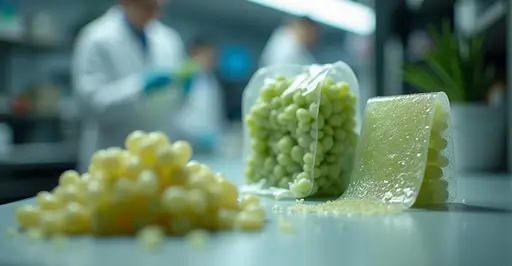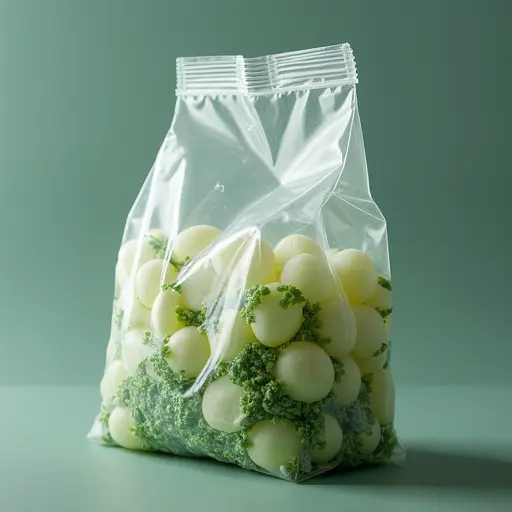
Revolutionary Biodegradable Packaging from Seaweed
Researchers have made significant strides in developing innovative biodegradable food packaging films derived from seaweed alginate, offering a sustainable alternative to traditional plastic packaging. This breakthrough technology promises to dramatically reduce plastic waste in global supply chains while maintaining food quality and safety.
The Alginate Advantage
Alginate, a natural biopolymer extracted from brown seaweed, has emerged as a game-changing material for food packaging applications. According to recent research published in the International Journal of Biological Macromolecules, alginate-based nanocomposite coatings and films demonstrate exceptional properties including low oxygen permeability, high biodegradability, and excellent biocompatibility.
The material's unique characteristics make it particularly suitable for food packaging due to its ability to regulate oxygen and moisture levels while acting as an effective barrier against microbial growth. This extends the shelf life of perishable food items while eliminating the environmental burden of plastic waste.
Environmental Impact and Sustainability
Traditional plastic packaging contributes significantly to global pollution, with food packaging representing a substantial portion of single-use plastics. The development of alginate-based alternatives addresses this critical environmental challenge by providing materials that are:
- Fully biodegradable and compostable
- Derived from renewable seaweed sources
- Low-cost and scalable for industrial production
- Nutritionally valuable and safe for food contact
Technical Innovations and Applications
Researchers have developed advanced nanocomposite formulations that enhance the mechanical properties and functional characteristics of alginate films. These innovations include:
- Improved tensile strength and flexibility
- Enhanced barrier properties against oxygen and moisture
- Antimicrobial properties through natural additives
- Customizable thickness and transparency for various food applications
The technology has shown promising results in preserving fruits, vegetables, dairy products, and prepared foods, potentially revolutionizing how we package and transport food globally.
Industry Adoption and Future Prospects
Major food corporations and packaging manufacturers are increasingly exploring biodegradable alternatives as consumer demand for sustainable packaging grows. The alginate-based technology offers a viable solution that aligns with global sustainability goals and regulatory requirements for reducing plastic waste.
Future research will focus on optimizing production processes, reducing costs, and expanding applications to various food categories. The development represents a significant step toward creating a circular economy in food packaging, where materials can be safely returned to the environment without causing pollution.
As the world grapples with plastic pollution challenges, these biodegradable packaging innovations offer hope for a more sustainable future in food supply chains and environmental conservation.

 Nederlands
Nederlands English
English Français
Français Deutsch
Deutsch Español
Español Português
Português







